Design Dilemma: Best Floors for Damp Basements
There comes a time when just about anyone with a basement starts fantasizing about the wonderful possibilities down there. Perhaps a man cave? Or maybe a rumpus room for the children? An in-law apartment? Or maybe a home office? Whatever function you choose, one of the biggest decisions you will face is picking out flooring.
Basements are notoriously damp and prone to leaks. Even relatively dry basements can suffer if there are exterior drainage issues during a torrential rain. So whatever flooring you choose, you’ll have to keep all that potential wetness in mind. The material should be mold resistant and not prone to water damage. Here are three inadvisable choices:
Wood. Although many of us may crave a beautiful wood floor, a wooden floor is probably the worst choice, as wood will warp and stain in damp or humid environments. Because a basement’s subflooring is often concrete, any kind of flooring that is in contact with concrete without a vapor barrier would be prone to rotting and mold.
Carpet. Prone to mildew, carpet and carpet tiles should probably be passed up as well. And aside from the mold likely to grow under that carpet, the adhesives used to stick the tiles in place typically don’t hold up to repeated soaks in water.
Laminate. You might think laminate would be a perfect choice for a basement floor, but you’d be wrong. Just like wood, engineered or laminate flooring would also likely buckle into an unsightly mess.
Okay, so now that we know what’s out, what’s in?
TILE. There is absolutely nothing that beats the practicality of a tile basement. Leaks, floods, and dampness will have no effect. Tile is easy to clean and is not prone to mold. If it does mold or mildew, it’s also easy to clean up.
Okay, so we know what you’re thinking. Tile feels cold and sterile and clinical. You want warm and cozy. We’ve got you covered. The wonderful thing about tile is that it comes in infinity varieties, and some tile actually feels warm. Take a look below:
Think TILE THAT LOOKS LIKE WOOD. Yep, the floor above is actually a tile floor, completely impervious to water. And so are these:
POLISHED OR STAINED CONCRETE. Since you most likely have concrete down there anyway, why not work with it? Concrete floors can actually be quite beautiful and even give a feeling of warmth when stained. For example, the rec room below has beautiful concrete floors that do not feel sterile at all.
Here’s another example:
LINOLEUM FLOORS. Wait — don’t be too dismissive yet! Vinyl and linoleum floors can provide an unbeatable practicality. They can also provide a rather chic, informal atmosphere, as you can see below:
Depending on the option you choose (or especially if you want to try laying down wood, laminate or carpet in a fairly dry basement) prepare your floors for your new flooring. Minimize moisture by applying a coat of a watertight sealant to the walls and floor. In some locations, the installation of a sup pump to help drain off excess moisture seepage from the surround ground may also be necessary. After sealing the concrete, lay down a layer of some type of waterproof insulation. Next, install sheets of plywood over the insulation. This will not only provide another barrier to moisture and mildew, but also help to make it easier to walk across the floor without putting additional stress on the legs. And there you go, you’ll be ready to lay down the flooring of your choice!
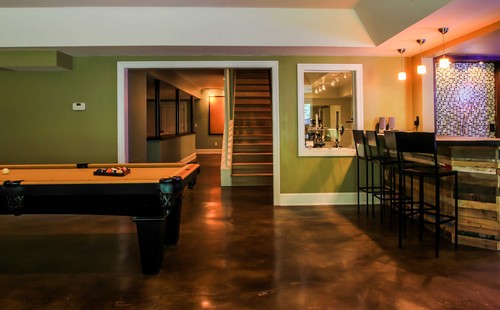
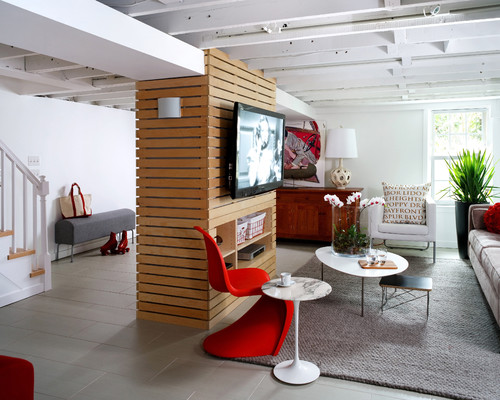
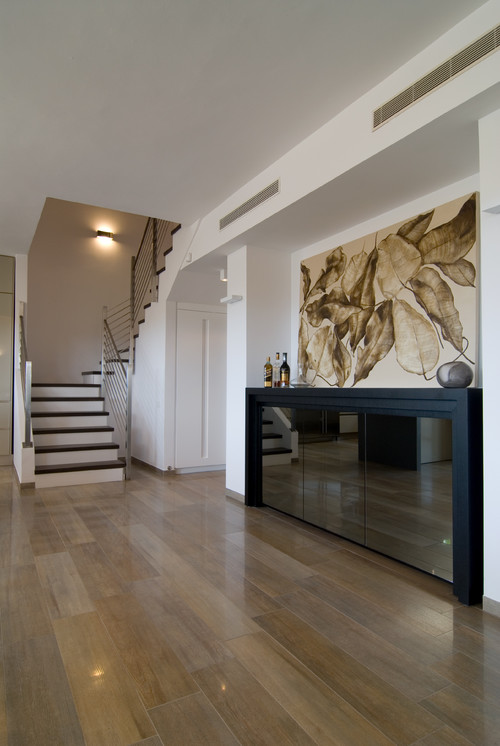
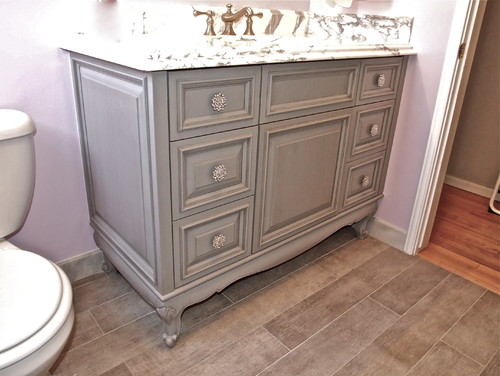
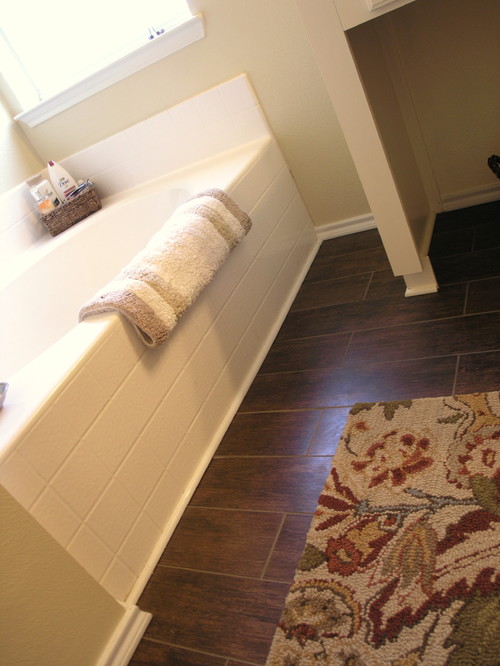
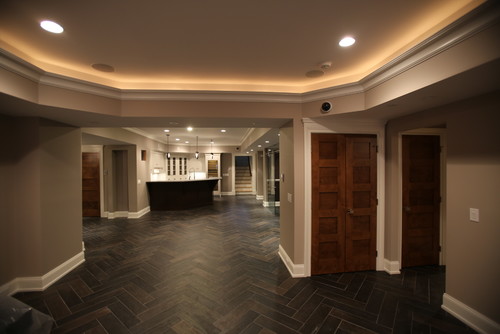
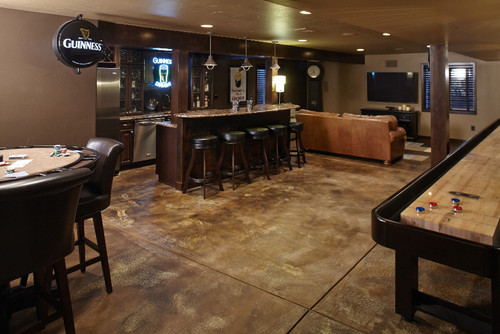
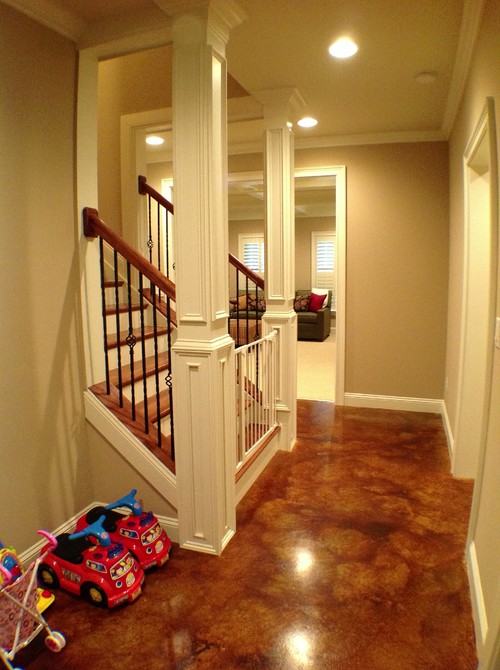
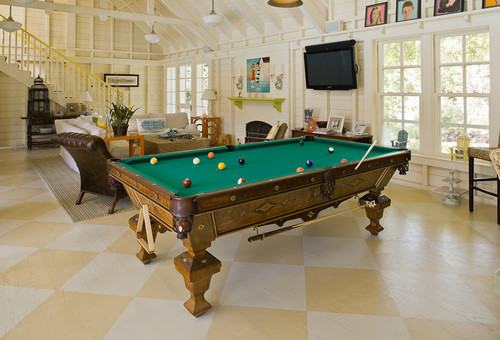
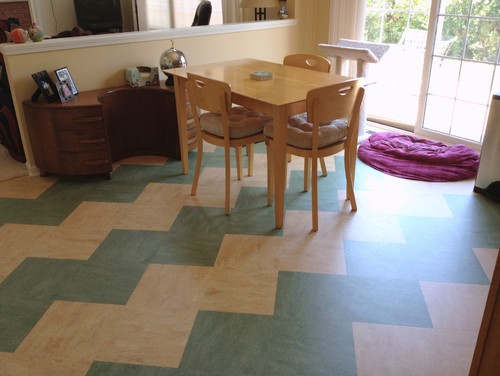
Leave a Comment